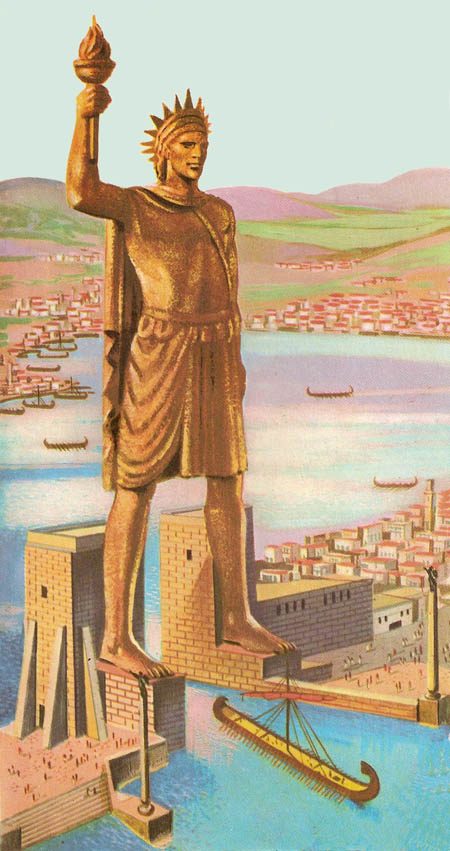The New Colossus
Not like the brazen giant of Greek fame,
With conquering limbs astride from land to land;
Here at our sea-washed, sunset gates shall stand
A mighty woman with a torch, whose flame
Is the imprisoned lightning, and her name
Mother of Exiles. From her beacon-hand
Glows world-wide welcome; her mild eyes command
The air-bridged harbor that twin cities frame.
"Keep, ancient lands, your storied pomp!" cries she
With silent lips. "Give me your tired, your poor,
Your huddled masses yearning to breathe free,
The wretched refuse of your teeming shore.
Send these, the homeless, tempest-tost to me,
I lift my lamp beside the golden door!"
--Emma Lazarus
The above poem is the most famous poem for which
Emma Lazarus is known till date in America. The poem was written in the year
1883 by her when the country of France wanted to gift Americans with the statue
and the Americans didn’t have enough funds for the pedestal. So some people who
had read Lazarus’ previous poems and were aware about the power of her words
told her to write an original poem as a donation for raising funds. Only a few
people know that Lazarus had initially refused to write this poem and agreed
only when she was assured that the statue will be of significance for incoming immigrants.
The title of the poem refers to the “colossus” of Rhodes
which is one of the seven wonders of the ancient world. The poem is not talking
about the old colossus in Greece but the new one which is in America. The poem
is a Petrarchan sonnet which means that there are eight lines (octave) dealing
with one topic first and the next six lines (sestet) dealing with another
topic. So it can be said that there are two themes in a single poem. In this poem
Lazarus first talks about how the “new” colossus in America is different from
the one in Greece and in the next six lines she talks about how the statue is
welcoming the immigrants with open arms.
The poem starts with the lines “Not like the brazen
giant of Greek fame” this refers to the statue in Greece which is made of brass
and this statue is exceptionally large with its limbs stretched far apart. Then
she says that “here at our sea-washed, sunset gates shall stand a mighty woman
with a torch” which refers to the statue of liberty. The poem then talks about
how the new statue will welcome the immigrants with open hands and will always
help them. She also uses the figure of speech of personification in a few lines
to show as if the statue is speaking to the immigrants. There is an emotional
tone in the poem. The rhyme scheme of the poem is “abba-abba-cd-cd-cd”.
This poem today is considered to be very important
for America but it might be really surprising for some of us that during the inaugural
of the statue the poem was not even read. It may also surprise you that Lazarus
never got to see the statue because before the statue was erected she left the
world for a heavenly abode. The poem never found a space for itself until 1903
when one of Lazarus’ friends gave a bronze plaque on which the poem was
engraved and today it can be seen on the pedestal and it is said that as the
number of people who quoted this poem increased people kept on forgetting the
original mind behind this poem.



